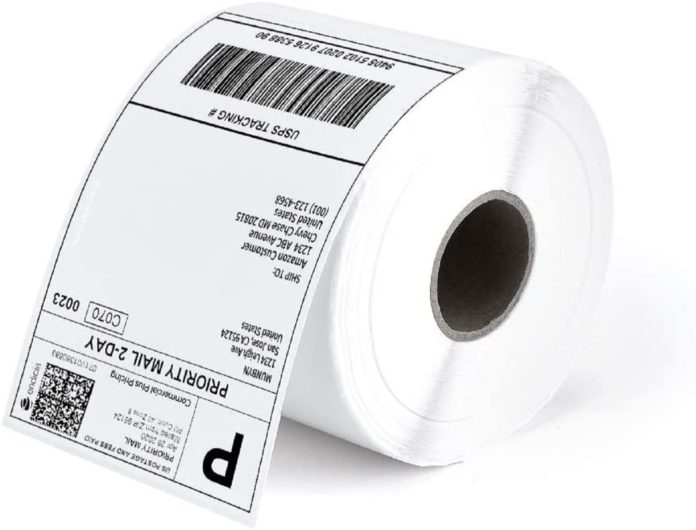In recent years, there has been a growing emphasis on safety in all aspects of our lives. From food products to household goods, consumers are increasingly concerned about the potential risks and hazards associated with the products they use on a daily basis. As a result, the importance of labels as critical information sources cannot be overstated.
These labels provide essential information about the potential risks, usage guidelines, and proper handling of a product. In this article, we will explore the role of labels as crucial sources of information for consumers and how they contribute to ensuring safety in our daily lives. We will also discuss the legal and regulatory requirements for labeling, as well as the responsibilities of manufacturers and retailers in providing accurate and comprehensive labeling for their products.
By understanding the significance of labels as critical information sources, we can make more informed decisions as consumers and prioritize safety above all else.
Importance of Clear Labeling
As consumer safety becomes an increasingly pressing concern, clear and accurate labeling has become more crucial than ever before. In order to protect consumers and minimize potential risks, it is essential for manufacturers and retailers to provide accurate and detailed labeling on their products.
This not only ensures that consumers are fully informed about potential risks and proper usage, but also helps to build trust and credibility with customers. Clear labeling is not only a legal requirement, but also a moral obligation to prioritize consumer safety.
In the modern market, where consumers are more conscious of product safety and transparency, companies must prioritize clear labeling as a critical information source to maintain a positive reputation and protect their customers.
Instructional Labels Enhance Consumer Safety
Properly labeled products not only ensure consumer safety but also demonstrate a commitment to transparency and accountability. Instructional labels are a critical source of information for consumers, providing them with important details on how to properly use and handle a product. These labels can include warnings, instructions for use, and safety precautions.
By clearly and prominently displaying this information, manufacturers and retailers can help prevent accidents and injuries, and ultimately, build a positive reputation for their brand. With the rise of online shopping, instructional labels are even more important as they provide consumers with critical information they may not be able to obtain from a physical product before purchase.
In today’s world, where consumer safety is of utmost importance, instructional labels are a crucial tool for ensuring product safety and promoting consumer trust. High temperature labels find applications in various industries, including manufacturing, automotive, aerospace, and food processing, where high temperatures are common.
Regulatory Compliance through Thorough Labeling
Thorough labeling is a key component of regulatory compliance for businesses and manufacturers. In order to ensure consumer safety, it is essential to provide accurate and comprehensive information on product labels. This includes not only product ingredients and potential hazards, but also instructions for proper use and disposal.
By following labeling regulations and providing thorough information, businesses can demonstrate their commitment to consumer safety and build trust with their customers. Additionally, thorough labeling can also protect businesses from potential legal issues or penalties for non-compliance.
Ultimately, safety should always be a top priority, and thorough labeling plays a critical role in achieving this goal.
Product Labels: A Trustworthy Resource
In today’s market, consumers are becoming increasingly conscious about the products they purchase, seeking out safe and reliable options. This is where product labels play a critical role as a trustworthy resource for consumers.
Not only do they provide important information about the product’s contents and potential hazards, but they also serve as a way for businesses to build trust with their customers. By accurately and clearly labeling their products, companies can show their commitment to consumer safety and gain a competitive edge in the market.
Additionally, thorough labeling helps businesses comply with regulations and avoid any potential legal issues. Therefore, it is crucial for businesses to prioritize proper labeling as a critical aspect of their overall safety and trust-building strategy.
Maximizing Safety with Accurate Labels
In today’s fast-paced market, consumer safety is a top priority for businesses. With increasing regulations and the need for transparency, accurate labeling is crucial for ensuring the safety of products and gaining the trust of consumers.
Labels provide critical information such as ingredients, usage instructions, and potential hazards, and it is essential for businesses to ensure that this information is accurate and easy to understand. By maximizing safety with accurate labels, businesses can not only meet regulatory requirements but also demonstrate their commitment to consumer safety, ultimately building a strong reputation and loyal customer base.
As such, labels should be carefully and professionally designed, taking into consideration all necessary information and adhering to labeling standards. Prioritizing accurate labeling is not only a legal obligation, but it also serves as a vital aspect of responsible and ethical business practices.
In conclusion, labels may seem like a small aspect of product packaging, but they play a critical role in providing consumers with important information about product safety. Whether it’s food allergies, chemical ingredients, or usage instructions, labels are a vital source of information for consumers to make informed decisions.
As manufacturers, it is essential to prioritize accurate and clear labeling to ensure the safety and well-being of our customers. Let us remember that safety should always come first, and labels play a crucial role in achieving that goal.



































